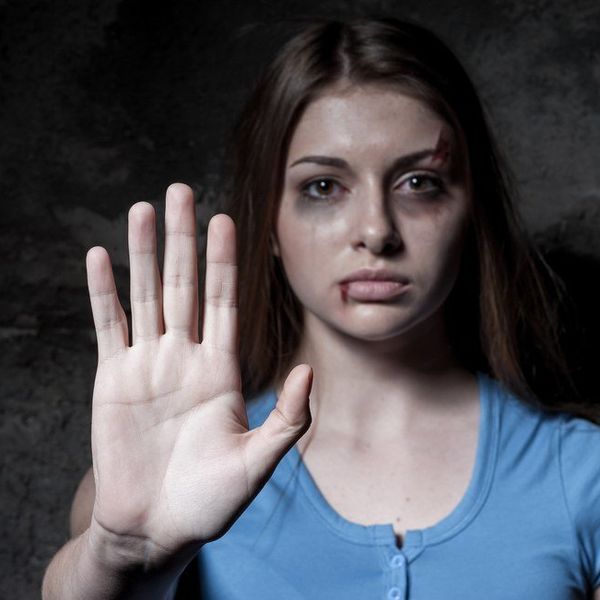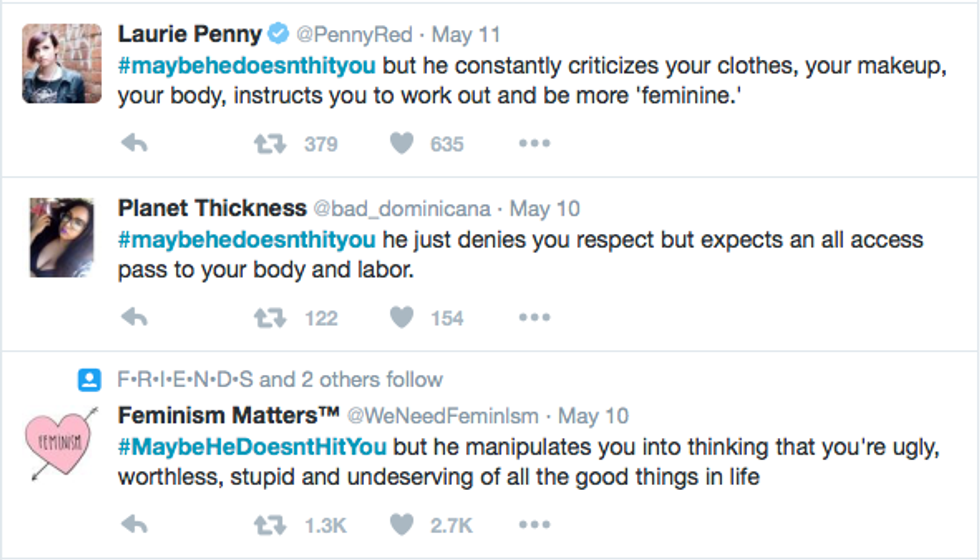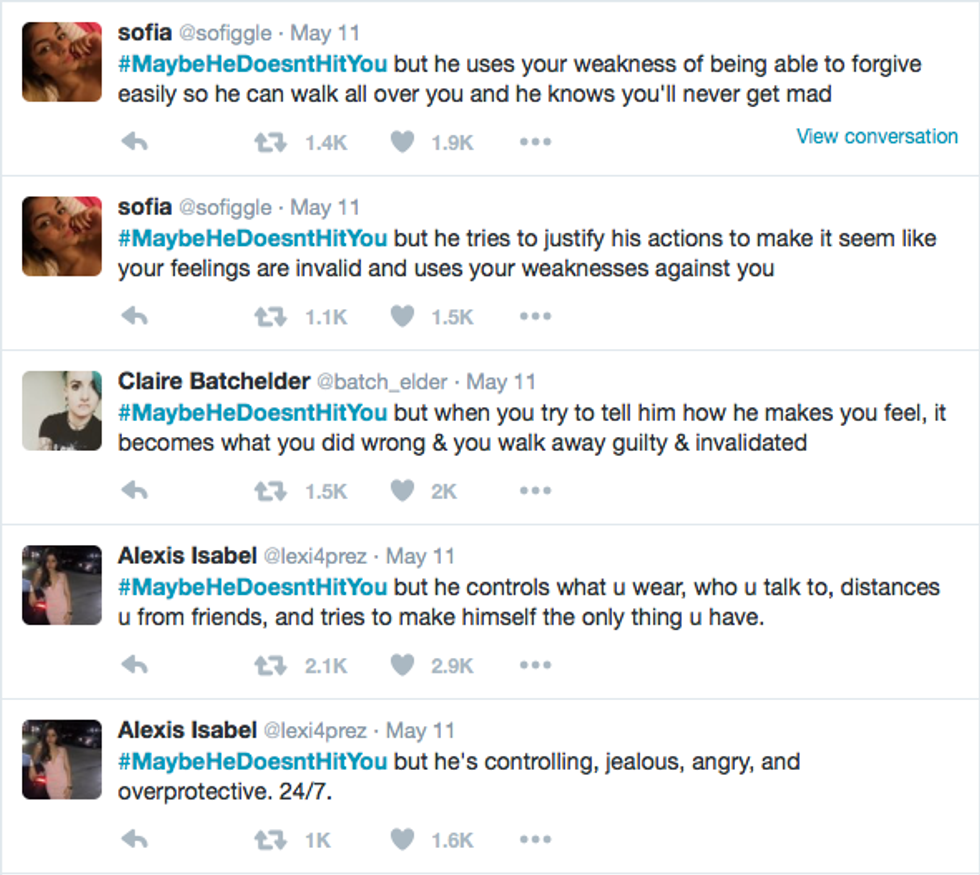When someone is in an abusive relationship, we automatically think the abuse is physical. We have these preconceived notions of what the toxic relationship should look like, and we search for visible signs. Bruises, scars, cuts, the list goes on, and we believe that if we can’t see anything of that sort, then the relationship must be fine. However, some of the most dangerous scars are the ones we can’t see.
Emotional abuse is just as dangerous and harmful as its physical counterpart, which not a lot of people tend to consider. The bright side is that this is becoming a more talked about lately. I was on Twitter last night, and I saw that #MaybeHeDoesntHitYou was trending. I was confused to say the least, so I clicked on the link, and these are some of the posts that I found:
This campaign is incredibly important, as it is changing society’s views and definitions on what is classified as domestic violence. Foundations such as One Love and Joyful Heart, alongside social media posts like these are opening people’s eyes up to what constitutes as a toxic relationship. Though I’ve been cheated on, I don’t consider myself to have been in an abusive relationship. I have however seen friends and family members stuck in volatile relationships, and it’s absolutely frustrating, so this topic is extremely important to me in that regard, as it is important to a lot of people. From an outside perspective, it is so hard to watch your loved one go through you feel as though there is nothing you can do to help him or her, but in actuality there are some things you can do to help.
If you feel like you or someone you love may be in an emotionally abusive relationship, here are the signs to watch out for:
- Humiliating or embarrassing you
- Constant put-downs
- Hypercriticism
- Refusing to communicate
- Ignoring or excluding you
- Cheating: both physical and emotional
- Provocative behavior with opposite sex
- Use of sarcasm and unpleasant tone of voice
- Unreasonable jealousy
- Extreme moodiness
- Mean jokes or constantly making fun of you
- Saying “I love you but…”
- Saying things like “If you don’t _____, I will_____”
- Domination and control
- Withdrawal of affection
- Guilt trips
- Making everything your fault
- Isolating you from friends and family
- Using money to control
- Constant calling or texting when you are not with him/her
- Threatening to commit suicide if you leave
If you see any or all of these signs present, it’s time to talk. If you feel as though someone you love is trapped in a toxic, hurtful relationship, there are certain conversational tactics you can utilize to help them. According to The Huffington Post, “If you suspect [he or] she is being abused, and you’re approaching [him or] her for the first time: Don’t focus on what a loser he [or she] is; in our survey, the top reason women [and men] stayed with an abusive partner was that they still loved him, so dismissing that love won’t help. Instead, start with how awesome [he or] she is.”
Criticizing the victim will only push him or her toward his or her abuser (I say him or her because not all abusers are men, and not all who are abused are women. Just like with any other situation, it’s a two way street, and we shouldn’t stereotype gender, or base anything off of our own preconceived notions). You need to uplift the victim, not push him or her down. Don’t talk solely about the abuser, focus on the victim. Focus on how amazing he or she is rather than how stupid he or she is for staying in the relationship. Instead of lecturing, ask him or her questions, it will open up a conversation and create a less hostile atmosphere. Let him or her know that you’ll be there if he or she needs anything at all. The most important thing you can do is be supportive (even though it can be extremely difficult), and assure the victim that the abuse is not his or her fault. If he or she is not listening, and is not seeing what you see, do not get frustrated. By listening, asking questions, and being supportive of the victim as a person, you’re already doing all you can do.
If your friend is ready to get help, or if you feel like you are in an abusive relationship, here is are links to some helpful resources:























